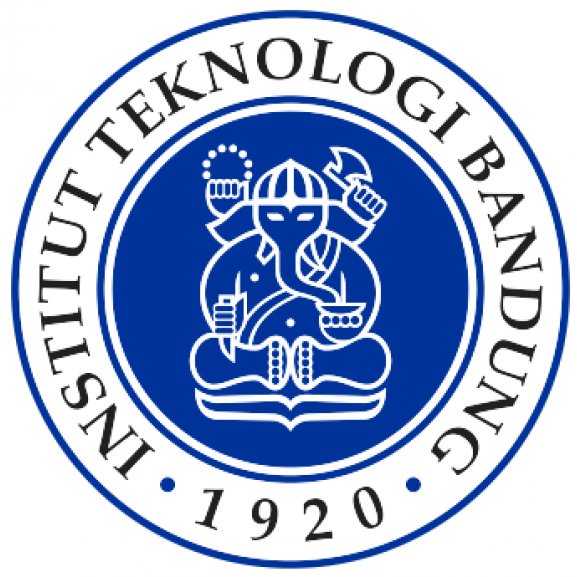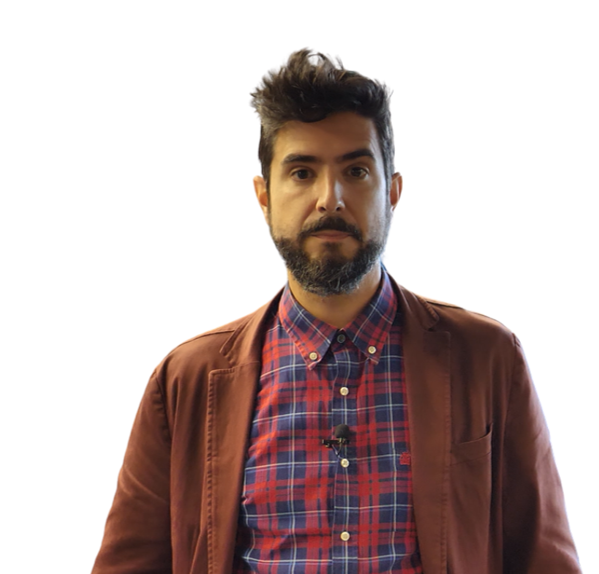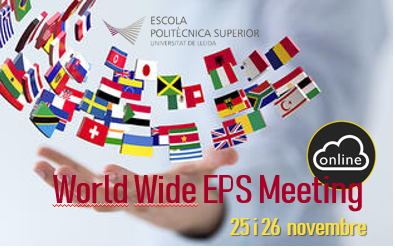Degree mobility programmes
Double Master's Degree International
Double Master’s Degree in Informatics Engineering – Master’s Degree in Computational Science
Participating institutions
Lleida 25001
Tel. (+34) 973 702 705
Administration of the Doble Degree
Principal contacts regarding the Double Degree are:
- Bandung: Muhamad A. Martoprawiro. Chair of Master Program in Computational Science of Faculty of Mathematics and Natural Sciences (muhamad@chem.itb.ac.id).
- UdL: Juan Enrique Garrido Navarro. Coordinator of the Master's Degree in Informatics Engineering from the Higher Polytechnic School.
- Jaume II Street, 69 25001 - Lleida, Catalunya Spain
- Tel: +34-973-70-2729 coord.meinf@eps.udl.cat
Presentation
The double degree was created to provide a possibility for students of the two universities (University of Lleida-EPS and Institut Teknologi Bandung-ITB) to obtain a second qualification at a foreign university and face their future working challenges with more options for success by opening the doors of the European and Asian working market. This double degree will offer students of both universities the opportunity to study for at least an academic year (10 months or 2 semesters) at another university and obtain the qualifications of both universities.
Additionally, carrying out a double degree at a foreign university means that students will have to face the challenge of moving and staying abroad for at least a year. This can be a determining factor for meeting the requirements set by the European Higher Education Area, whose main objective is to train professionals capable of working efficiently in any country.
Training pathway
To obtain a double degree, 109.5 ECTS credits must be taken in four semesters: students will spend the 1st and 4th semesters at the home university, and the 2nd and the 3rd semesters at the host university.
Complementary mandatory training, carried out at the host university, is described later. Passing this complementary training and obtaining the required credits at the home university will result in the award of the Double Master’s Degree in Informatics Engineering – Master’s Degree in Computational Science.
1.Students from the ITB of Bandung
To obtain the Master’s Degree in Informatics Engineering of the UdL (MEINF), students from the ITB of Bandung will have to pursue the following MEINF subjects at the UdL:
| Subjects | |
| 1er Semestre at ITB | CU |
| Introduction to Computational Science | 2 |
| Advanced Numerical Analysis | 3 |
| Algorithm and Software Design | 3 |
| Networking and Parallel Data Processing | 2 |
| Thesis 1 | 3 |
| 2on Semestre at UdL | ECTS |
| ICT Project: Communication Services and Security | 9 |
| Technological Business Management and Entrepreneurship | 6 |
| Work Placement in a research group | 6 |
| 3er Semestre at UdL | ECTS |
| IT Project Management | 7.5 |
| ICT Project: Development and Implementation | 9 |
| Computer Graphics and Multimedia | 4.5 |
| Intelligent Systems | 4.5 |
| Embedded and Ubiquitous Systems | 4.5 |
| 4art Semestre at ITB | CU |
| Capita Selecta in Computational Science | 3 |
| Modelling and Simlulation in Science | 3 |
| Thesis 2 | 3 |
| Master Thesis (TFM-UdL) | 4 |
The Master thesis (TFM-UdL) must be completed during the last semester at ITB. The Master thesis (TFM-UdL) could be co-advised by professors from both institutions and must be defended in front of an academic comision at UdL. Upon completion of the courses at UdL and recognition of the passed credits at ITB students will obtain the Master’s Degree in Informatics Engineering.
2. Students from the UdL
Students from the UdL who wish to obtain both degrees will have to take the mandatory courses of the MEINF and the equivalence to 50 ECTS credits at the ITB of Bandung. The subjects that must be taken and the study periods are listed below:
| Subjects | |
| 1st Semester at UDL | ECTS |
| IT Project Management | 7.5 |
| ICT Project: Development and Implementation | 9 |
| Computer Graphics and Multimedia | 4.5 |
| Intelligent Systems | 4.5 |
| Embedded and Ubiquitous Systems | 4.5 |
| 2on Semester at UDL | ECTS |
| High Performance Computing | 4.5 |
| Evaluation Techniques and Usability Testing | 4.5 |
| Technological Business Management and Entrepreneurship | 6 |
| ICT Project: Communication Services and Security | 9 |
| 3er Semester at ITB | CU |
| Advanced Numercial Analysis | 3 |
| Special Topics in CS | 3 |
| Networking and Parallel Data Processing | 2 |
| Thesis 1 | 3 |
| 4art Semester at ITB | CU |
| Modeling and Simulation in Science | 3 |
| Research Methodology | 2 |
| Capita Selecta in Computational Science | 3 |
| Elective Courses (Computational Science) | 3 |
| Thesis 2 | 3 |
| Master Thesis (TFM-UdL) | 4 |
The Master thesis (TFM-UdL) must be completed during the last semester at ITB. The Master thesis (TFM-UdL) could be co-advised by professors from both institutions and must be defended in front of an academic comision at UdL. Upon completion of the courses at UdL and recognition of the passed credits at ITB students will obtain the Master’s Degree in Informatics Engineering.
Realization and Reading of the Master’s Thesis
In regard to realizing and reading the Master’s thesis (MT), the following aspects must be taken into consideration:
- The thesis may have a research orientation, in which case the report will follow the structure of an academic paper (methodology, theoretical and empirical part, conclusions, recommendations and bibliography), or it may be more oriented towards a company, in which case the report will have to include an economic study.
- The thesis will be carried out and defended at the home university in the last semester.
- The thesis is worth 12 ECTS credits.
Support of exchange students
The following aspects are agreed:
1. With respect to applications for entering the programme:
- If the number of applications overcomes the maximum number of students, the institutions will choose the candidates.
- Each institution will publish on its website a calendar of applications and admission letters.
- Students will have to demonstrate the minimum level of English, TOEFL 80 (Internet-based test) or TOEFL 550 (paper-based test), equivalent to B1, although higher levels are recommended.
2. With respect to the preparation of exchange, the host university will:
- Facilitate the details of subjects and courses to study, as well as teaching methods.
- Organize a welcome programme for the students who take part in the double degree to provide them with information about living and studying in a new country.
- The institutions will ensure the integration of foreign students into a new academic, social and cultural environment
4. Students who take part in the programme between the two institutions will have the following economic conditions:
- Enrolment: students involved in the programme will enrol in the host university without paying any cost.
- Accommodation is arranged by the destination university and financed by the student.
- Travel: students will cover all international and national expenses.
- Books and other teaching materials (printing, copies): students will cover their own expenses.
- Students who take part in the programme will cover other daily expenses.
- Students may apply for calls to obtain travel and stay grants. Students are encouraged to pay close attention to the deadlines that correspond with the period of stay for which they require funding.
Students’ rights and duties
During the exchange period the students will have the same rights and duties as the other mobility students. Throughout their stay at the host university, the students will take assessment tests in the subjects they are enrolled in at the host university, according to the assessment requirements of corresponding subjects.
Issuing and delivery of qualifications
The host institution will issue a corresponding qualification after having received information from the home institution demonstrating that the student has passed all subjects established in the syllabus of the home institution and have passed the host university courses described in the section “training pathway” of the certified document.
In the case of the Spanish qualification, the students from the ITB will be informed to pay a fee established by the Spanish Government for issuing the certificate.
ITB Institut Teknologi Bandung

The Institut Teknologi Bandung (ITB) was founded on 2 March 1959. Its campus is host to the first engineering schools in Indonesia
In 1920 the Technische Hogeschool (TH) was established in Bandung. In the 1940s the School was transformed into Kogyo Daigaku. A short time after the birth of the Republic of Indonesia in 1945, the campus hosted the Technical Faculty (including the Fine Arts department) of University of Indonesia with its headquarters in Jakarta. At the beginning of the 1950s, the Faculty of Mathematics and Natural Sciences of the University of Indonesia was also established in the present campus.
In 1959, the present Institut Teknologi Bandung was founded by the Indonesian Government. It was established as a higher education institution of science, technology and art, with the mission to place education and research at the service of society. The ITB is considered as one of the best technology universities in Indonesia and ranked among the best in the world. Bandung, with approximately one and a half million inhabitants, is situated in a mountainous region in the west of Java, and has an altitude of 770 metres. The principal ITB campus in the north of the centre of the city and its other campuses cover a surface of 770.000 square metres.
Indonesia has a tropical climate and its temperatures are relatively constant, with an average of 26 ºC to 28 ºC during the year. The cost of living in Indonesia is quite low. Renting an apartment with a sleeping room may cost between €110 and €260 a month, depending on the location of the apartment. Indonesia offers a vibrant and multicultural atmosphere for international students. Approximately 6.000 international students are studying in Indonesia at the moment. Most come from Malaysia, but many students are also from the Netherlands, Germany, France, Spain, and Japan.
Directorate of International Relations EPS
 Àlvaro De Gracia
Àlvaro De Gracia
The Polytechnic School of the University of Lleida launched an Internationalization Plan in 2013 that establishes the objectives and actions to be carried out to achieve the internationalization of the studies taught at the School. The tab in progress and implementation of this plan is the responsibility of the EPS Management team, mediating the deputy director of International Relations.
Each Center incorporates the figure of an academic coordinator of international relations to provide students with more precise, careful and close information regarding their mobility expectations. The academic coordinator of international relations of the Higher Polytechnic School is the deputy director of the School.
Location |
Contact |
Customer service hours |
|
Cappont campus Polytechnic School - CREA Building Calle Pere Cabrera, s / n - Office 1.08 E-25001 Lleida (Catalonia) |
Tel. (+34) 973 00 35 77 Fax. (+ 34) 973 00 35 75 |
manage via email |
World Wide EPS Meeting

World Wide EPS Meeting
The Polytechnic School of the University of Lleida considers the process of internationalization of the center a key aspect. On the one hand, for its own establishment and strengthening as a reference center. On the other hand, for the professional future of its students. This process allows us to face the future with optimism and a global and open vision of the world.
The future professionals who have emerged from the Polytechnic School must be able to face their future work challenges with the maximum guarantees of success, understand and visualize in a global way the authentic and excellent job opportunities that are offered at a European and global level. This desire for internationalization focuses on four main lines of action:
- The internationalization of the institution in all its fields of action (teaxi, research and transfer).
- The internationalization of all members of the university community.
- The internationalization of the reseració and the transfer.
- The consolidation of a solid and high quality international destination for our students.




